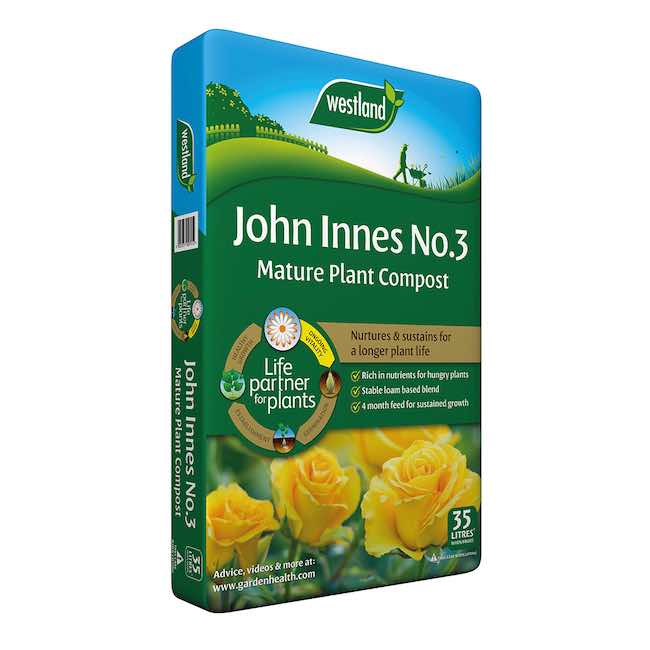
John Innes composts
John Innes compost is a type of soil-based compost that was developed at the John Innes Centre, a plant science research institute in the United Kingdom. This type of compost is widely used for growing a variety of plants, including vegetables, herbs, fruits, and flowers.
There are three different types of John Innes compost: Number 1, Number 2, and Number 3. The primary difference between these three types of compost is the ratio of ingredients used in each mix.
John Innes No.1 Compost is designed for starting seedlings and rooting cuttings. It has a lower nutrient content than the other two composts, which makes it suitable for delicate seedlings that may be susceptible to root burn or other issues with high nutrient levels. The mix contains a high percentage of sphagnum peat moss, along with sand and a smaller amount of loam and fertilizer.
John Innes No.2 Compost is the most commonly used compost in the John Innes range. It is a general-purpose compost that is suitable for a wide range of plants, from potting on seedlings to growing mature plants. It has a slightly higher nutrient content than John Innes No.1, and includes a mix of sphagnum peat moss, loam, sand, and a balanced blend of fertilizers.
John Innes No.3 Compost is formulated for mature plants and for use in containers that will not be re-potted. This compost has a higher nutrient content than the other two composts, and is designed to provide a long-lasting source of nutrients for the plants. It is made from a mix of loam, sphagnum peat moss, and sand, along with a higher amount of fertilizers than the other two composts.
John Innes Ericaceous Compost is a specialized type of compost that is specifically formulated for growing acid-loving plants, such as rhododendrons, azaleas, and blueberries. It has a lower pH than the other John Innes composts, which is achieved by using a high proportion of sphagnum peat moss and including additional ingredients such as vermiculite, perlite, and fertilizer that are specifically formulated for these types of plants.
In summary, the key differences between the different types of John Innes compost are the nutrient content, pH, and the proportion of ingredients used in each mix. It’s important to choose the right type of compost for the plants you are growing to ensure they receive the correct level of nutrients and pH levels for healthy growth.
Find a stockist





















